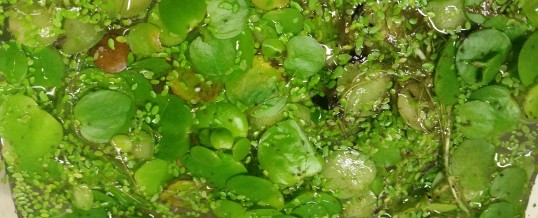
Fast-thinking members of Wagga Wagga Council’s vegetation management team have stopped a possible outbreak of a class 1 state prohibited noxious weed in its tracks. Council staff were alerted to the sale of Frogbit on eBay and after making contact with the Wagga-based seller through the site, were able to seize and destroy the dangerous plant. Land Management Officer Jeremy Crocker said the South American plant may look harmless, but divides and multiplies as it slowly choked out life in waterways.
“There’s no wild population of it in NSW, that’s why it’s a class 1 weed,” he said.“Once it covers the water it will start to multiply on top of itself, then the bottom plants don’t get sun. Those plants then die and fall to the bottom. When they start to break down they’ll take all the oxygen out of the water and that will cause the water to go brackish, which in turn will kill the fish and lessens the water quality.”
Council officers visited the seller’s home in Glenfield Park on 21 January and found a large amount of the weed.The seller was unaware of the declared status of Frogbit, but was extremely co-operative and assisted in the collection of plants.
“We found two medium-sized aquariums full and a shell pool full as well,” Mr Crocker said. A small amount of the weed will be kept for educational purposes and to help residents assist in identifying Frogbit.
Wagga Wagga City Council advises all residents to buy plants only from reputable nurseries. If you think you may have Frogbit or have any other enquiries, please contact WWCC’s Vegetation Management team.
What is Frogbit?
Frogbit (also known as Sponge Plant Limnobium laevigatum) is a floating aquatic plant, which can be mistaken for Water Hyacinth due to their superficial similarity. Juvenile plants grow in rosettes of floating leaves that lie upon the water surface. A distinguishing character of the juvenile plant is the presence of spongy tissue on the underside of the leaf.
Mature plants can grow up to 50 cm tall and has small, white, and unisexual flowers.
Frogbit can reproduce and distribute sexually through flower pollination and seed production, and also through fragmentation of stolon segments.
Being buoyant, the juvenile plants can spread easily as they can be carried quickly by water currents.
Jeremy Crocker
Wagga Wagga City Council
FEB
